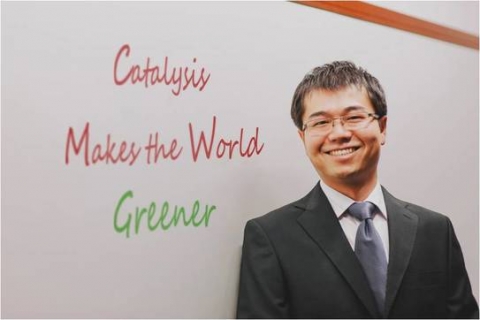
Date:
Location:
Speaker:
Abstract:
An estimated 6–8 million tons of shell waste from crustaceans are produced annually. These shells have low monetary value; for instance, dried shrimp shell powders are sold at merely US$100–120 per ton, the price of which is comparable with agricultural lignocellulosic biomass waste. Valorization of waste shells may bring both ecological and economic benefits. However, there is no satisfactory solution to utilize them at present. A vast majority of the shells are directly disposed of or landfilled without utilization, posing environmental issues. By harnessing the wisdom accumulated in woody biomass utilization, the concept of the shell biorefinery was recently proposed [1,2], whereby crustacean shells are separated into different fractions, and each fraction is upgraded or transformed into value-added products. The key technical challenges for shell biorefinery are the exploration of efficient, low-cost fractionation methods and the development of innovative transformations for chitin and other components in the shell. In this talk, we will mention recent developments from our group along this line. In particular, we will present the potentials of converting chitin into N-containing chemicals (Scheme 1). Several strategies, including dehydration, liquefaction, hydrogenolysis and hydrothermal treatment, will be described in detail, which demonstrated that chitin is indeed an attractive starting material for the manufacturing of certain value added chemicals. [3-9]

Scheme 1. Chemicals that could be produced directly from chitin or shrimp shells.
Bio:
Ning Yan obtained his bachelor and PhD degrees from Peking University in 2004 and 2009, respectively. Thereafter, he worked as a Marie-Curie Research Fellow at Ecole Polytechnique Federale de Lausanne, Switzerland. He joined the National University of Singapore (NUS) as an Assistant Professor and established the Lab of Green Catalysis in 2012. His major research interest includes catalytic biomass conversion, green chemistry & engineering, and catalyst development. Recently, he won the Young Investigator Award from NUS and the Young Researcher Award from Global Green Chemistry Centres Network (G2C2).
Sponsored by the Mellichamp Academic Initiative in Sustainability



